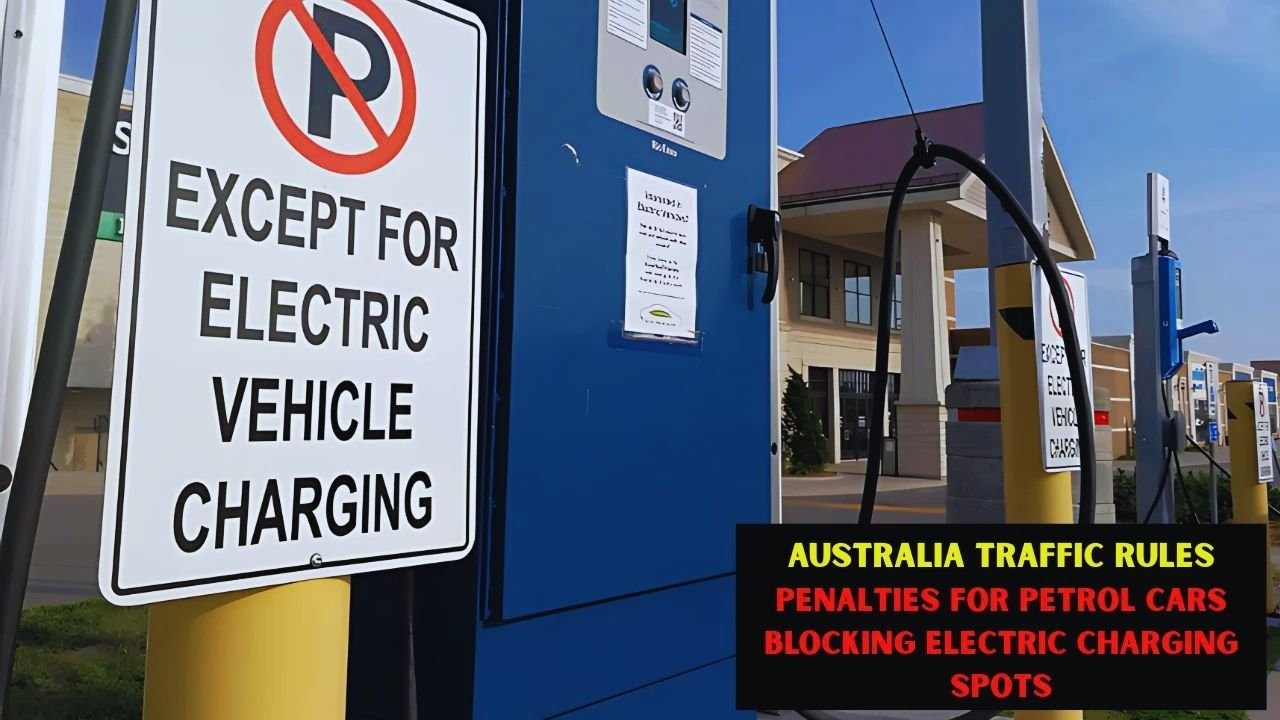New South Wales is stepping up its support for electric vehicles (EVs) with strict penalties for petrol and diesel cars parked in EV charging bays. This move targets the growing problem of “ICEing,” where Internal Combustion Engine (ICE) vehicles block EV charging spots, limiting access for electric vehicle owners. With EV adoption on the rise, ensuring public charging stations remain available is critical.
Fines for Illegal Parking in EV Charging Bays
| State/Territory | Maximum Fine (AUD) | Notes |
|---|---|---|
| Australian Capital Territory (ACT) | $3,200 | Highest fine in Australia |
| Queensland | $2,875 | Strong deterrent |
| New South Wales (NSW) | $2,200 | Applies to ICE & non-charging EVs |
| Victoria | $369 | Endorsed since 2020 |
| South Australia | $250 | Enforced since March 2024 |
Why These Fines Matter
Blocking EV charging bays slows down the adoption of electric vehicles and reduces the effectiveness of public charging infrastructure. By imposing penalties up to $2,200 in NSW, authorities aim to:
- Ensure EV owners can access charging stations without delays.
- Encourage responsible use of public EV parking bays.
- Support Australia’s transition to cleaner, low-emission transport.
Key Impacts for EV Owners
- Reduced frustration and waiting times at charging stations.
- Increased confidence in planning long trips without battery anxiety.
- Improved efficiency of public charging networks.
Legal Framework and Enforcement
Under the Road Rules Road Safety Act 2022 (NSW):
- Only electric vehicles actively charging may stop or park in EV charging bays.
- Blocking a charging bay without charging carries a fine of 20 penalty units ($2,200).
- Local councils are responsible for enforcement, helping NSW meet its environmental emission goals.
This rule applies even if a vehicle is parked temporarily or is an EV not currently charging, ensuring fair use of limited infrastructure.
National Comparison
NSW’s fine of $2,200 is among the highest in Australia, behind:
- ACT: $3,200
- Queensland: $2,875
Other states like Victoria ($369) and South Australia ($250) impose much lower fines, highlighting the varying levels of enforcement across the country. Despite differences, these laws collectively protect EV infrastructure and encourage responsible parking nationwide.
Broader Implications for EV Adoption
By enforcing these fines, NSW supports the transition to electric mobility by:
- Reducing barriers to EV ownership.
- Encouraging investment in additional charging infrastructure.
- Promoting cleaner, greener cities by making EV use more practical.
FAQs
Q1: Can petrol cars park in EV charging bays in NSW?
A: No. Only electric vehicles actively charging are allowed to park in these bays.
Q2: What is the maximum fine for blocking an EV charging bay in NSW?
A: The maximum fine is $2,200.
Q3: Who enforces these fines?
A: Local councils handle enforcement across NSW.
Q4: Do other states have similar penalties?
A: Yes, fines vary from $250 in South Australia to $3,200 in ACT.
Q5: Why are these fines important?
A: They ensure EV owners have access to charging stations, supporting cleaner transport and faster EV adoption.
Conclusion
NSW’s strict penalties for petrol and diesel vehicles blocking EV charging bays mark a critical step in supporting electric mobility. By enforcing fines up to $2,200, the state ensures fair access to charging infrastructure, encourages responsible parking, and accelerates the transition to sustainable, low-emission transport. For EV owners, these rules mean less waiting, greater convenience, and stronger confidence in switching to electric vehicles.




